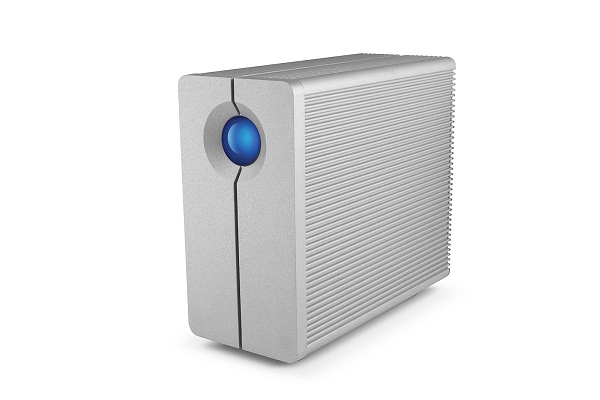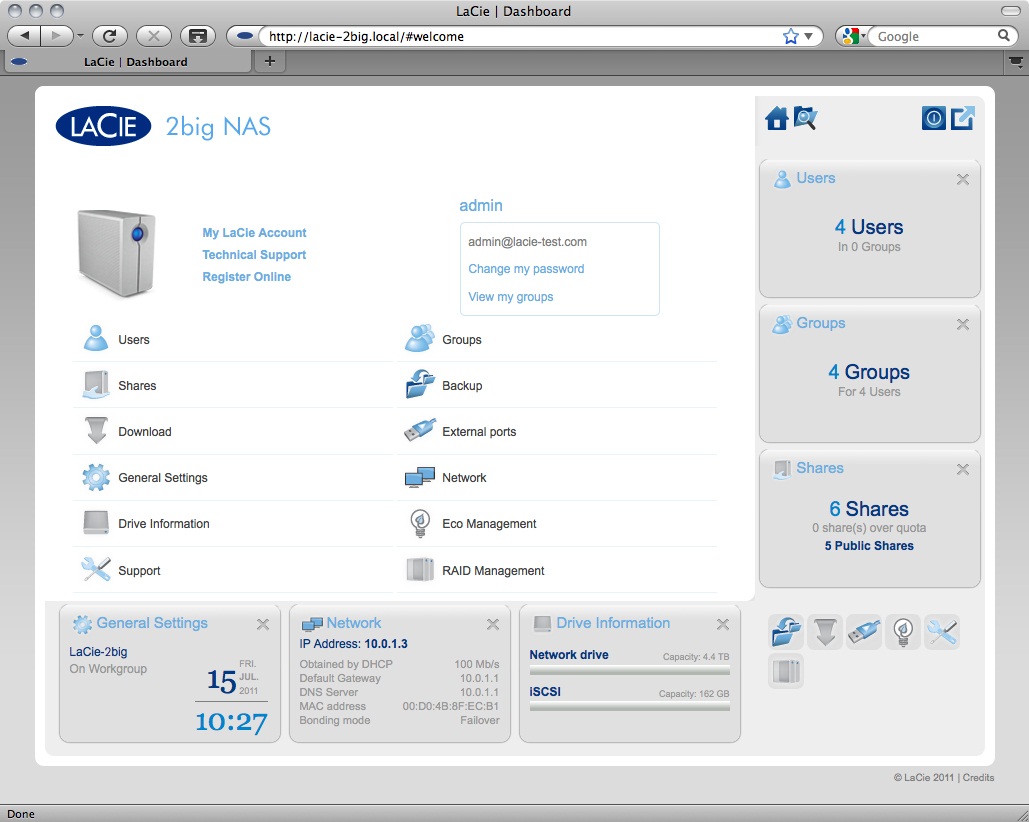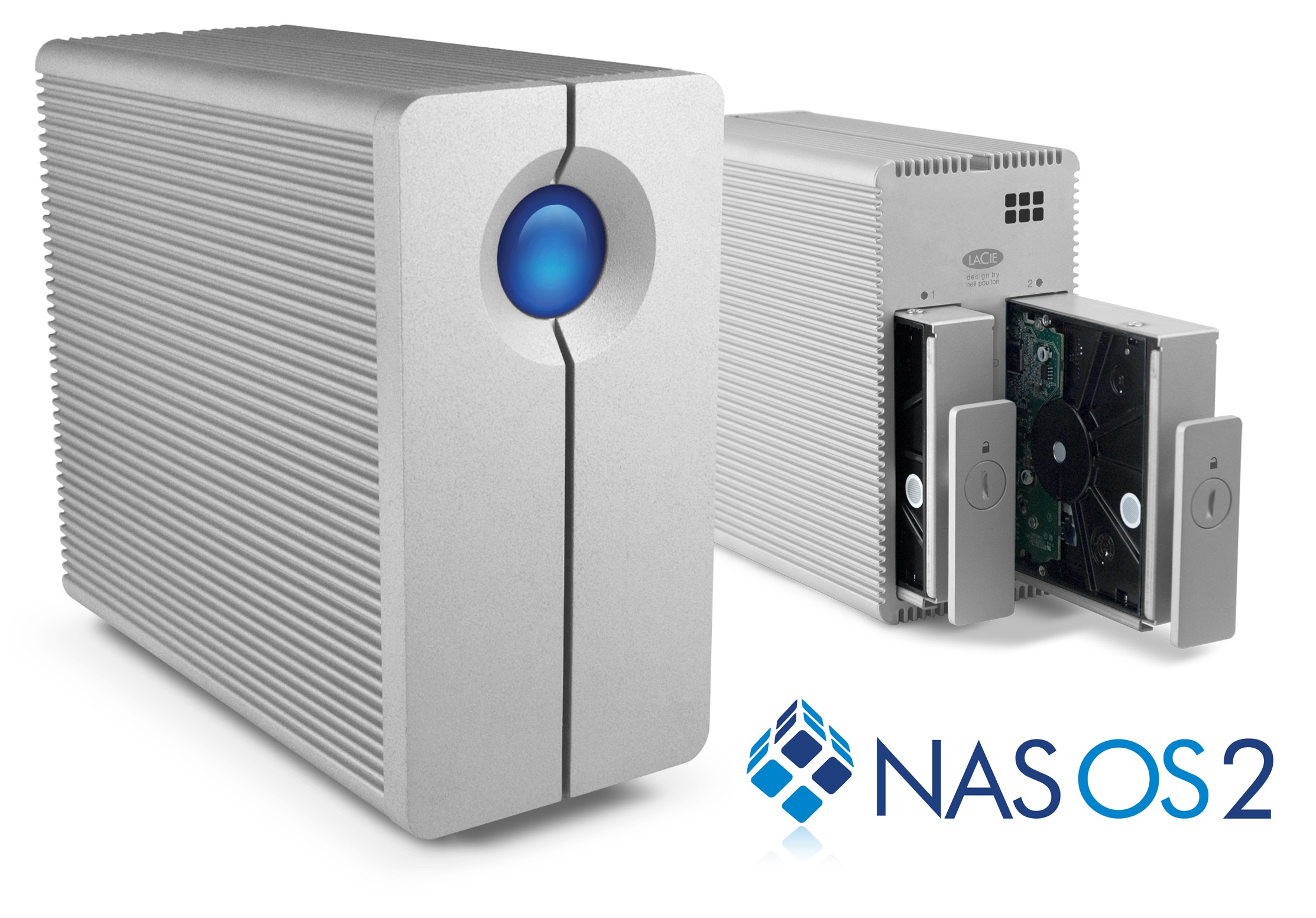LaCie 2big 6TB NAS review
LaCie has incorporated a 2GHz ARM processor and 256MB of RAM into this NAS to help cater to the needs of SMBs. But is this smart-looking device worth more than £400?
LaCie’s latest balances a decent turn of speed in most of our tests alongside software which gives quick access to the most common options thanks to intuitive, widget-led design. Powers users may balk at the lack of ports and advanced options and those on a budget may be put off by the price, but for homes and small offices this is a fine NAS device which should satisfy the needs of most.


LaCie 2big Nas 6TB

LaCie 2big Nas 6TB - Widgets

LaCie 2big Nas 6TB - Front and back
The 2big NAS aims to straddle the home and small office markets by mixing high capacity and Gigabit Ethernet connectivity with easy-to-use software.
Under the hood
The LaCie 2big supports many of the protocols we'd expect from a small business NAS. File server support includes SMB, AFP, FTP, SFTP and NFS, as well as HTTP and HTTPS web access. Elsewhere, the LaCie also handles BitTorrent, Apple Bonjour, NTP, iSCSI and more. The 2big works as both UPnP and iTunes servers, and it's also possible to use the device as a print server.
It's all powered by an ARM processor which runs at 2GHz, and it's partnered by 256MB of RAM.
There's the one Gigabit Ethernet connection, and the two hard disks inside can be configured in both RAID 0 and RAID 1 mode, with 5.44TB available when using the former setting and 2.72TB of room when the latter mirrored mode is enabled. The disks themselves are 3TB Seagate Barracuda drives, which use the faster SATA 6Gbit/s interface and pack 64MB of cache, so bottlenecks should be kept to a minimum.
Performance
The LaCie isn't the quickest drive we've seen, but its speed should suit the needs of a small business. It's faster in its striped RAID 0 mode: its large file write and read speeds of 59.6MB/s and 72.4MB/s outpaced the same tests in RAID 1, where the drive scored 46.8MB/s and 67.1MB/s.
The same pattern was seen in our small file tests, although the LaCie was slower here. In RAID 0 it wrote and read small files at 5.1MB/s and 22.3MB/s, with these figures dropping to 4.2MB/s and 17.6MB/s with RAID 1 enabled.
Sign up today and you will receive a free copy of our Future Focus 2025 report - the leading guidance on AI, cybersecurity and other IT challenges as per 700+ senior executives
Mike Jennings has worked as a technology journalist for more than a decade and has been fascinated by computers since childhood, when he spent far too long building terrible websites. He loves desktop PCs, components, laptops and anything to do with the latest hardware.
Mike worked as a staff writer at PC Pro magazine in London for seven years, and during that time wrote for a variety of other tech titles, including Custom PC, Micro Mart and Computer Shopper. Since 2013, he’s been a freelance tech writer, and writes regularly for titles like Wired, TechRadar, Stuff, TechSpot, IT Pro, TrustedReviews and TechAdvisor. He still loves tech and covers everything from the latest business hardware and software to high-end gaming gear, and you’ll find him on plenty of sites writing reviews, features and guides on a vast range of topics.
You can email Mike at mike@mike-jennings.net, or find him on Twitter at @mikejjennings
-
 Snowflake and OpenAI are teaming up to help enterprises capitalize on their "most valuable asset"
Snowflake and OpenAI are teaming up to help enterprises capitalize on their "most valuable asset"News OpenAI models and tools will now be embedded within the Snowflake Intelligence and Cortex platforms
By Ross Kelly Published
-
 What security teams need to know about the NSA's new zero trust guidelines
What security teams need to know about the NSA's new zero trust guidelinesNews The new guidelines aim to move an organization from discovery to target-level implementation of zero trust practices
By Emma Woollacott Published
-
 Amazon’s rumored OpenAI investment points to a “lack of confidence” in Nova model range
Amazon’s rumored OpenAI investment points to a “lack of confidence” in Nova model rangeNews The hyperscaler is among a number of firms targeting investment in the company
By Ross Kelly Published
